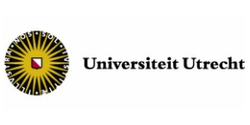PhD position in Optimisation for Intelligent Charging of Electric Vehicles
Updated: 20 Dec 2024
Many governments have set targets and policies for zero-emission vehicles to meet global climate goals by 2050. In response to this, there has been an increase in the electrification of all major mobility providers, from private and shared cars, to busses, trucks and large commercial vehicles. For this to be operationalised at a large scale, effective charging strategies are needed to manage the network both at the Low Voltage, as well as at the Medium Voltage level. In this project, we aim to develop large-scale optimisation models to effectively charge fleets of electric vehicles.
Your job
In this research project, you will be working towards developing optimisation models that prescribe effective charging strategies for heterogeneous fleets of electric vehicles. Objectives to be modelled are, for example, the fact that the charging needs of the vehicles should be satisfied while considering the constraints imposed by the Low Voltage and Medium Voltage grid segments. For this, you will consider the power flow relations for a combined Medium-Voltage Low-Voltage network. At the same time, additional aspects such as the urgency of the charging needs and/or fairness among charging vehicles should be considered. Charging strategies are to be prescribed for a heterogeneous fleet of electric vehicles, including electric cars and shared cars, electric busses and electric trucks.
To be able to scale up the optimisation model proposed, you will also be investigating advanced decomposition methods and/or relaxation approaches for linear programming models. As input to your models, you will be analysing realistic datasets on charging profiles of various types of electric vehicles. With these data, you will analyse the performance of your optimisation models.
This PhD project is part of an European research project. As such, within the project you will have the opportunity to collaborate with other European universities and researchers. Also, as part of the PhD programme, you will have the opportunity to take technical courses on topics such as optimisation and data analysis, as well as courses on personal development.
Requirements:
We are looking for an enthusiastic new colleague who meets the following criteria:
- You hold a Master’s degree in Operations Research, Applied Mathematics or Computer Science, or you are within a few months from the completion of your degree.
- You are familiar with optimisation methods (linear programming, decomposition methods, dynamic programming).
- You are able to work with datasets and process data to use within optimisation models. You have demonstrated programming skills (familiarity with Python is a plus).
- You possess collaboration and communication skills with an independent outlook in defining and solving research problems.
- You are proficient in English.
- Familiarity with the topic of electric grids and charging schemes is a plus.
Salary Benefits:
- A position for four years;
- a gross monthly salary between €2,901 and €3,707 in the case of full-time employment (salary scale P under the Collective Labour Agreement for Dutch Universities (CAO NU));
- 8% holiday pay and 8.3% year-end bonus;
- a pension scheme, partially paid parental leave and flexible terms of employment based on the CAO NU.
In addition to the terms of employment laid down in the CAO NU, Utrecht University has a number of schemes and facilities of its own for employees. This includes schemes facilitating professional development, leave schemes and schemes for sports and cultural activities, as well as discounts on software and other IT products. We also offer access to additional employee benefits through our Terms of Employment Options Model. In this way, we encourage our employees to continue to invest in their growth. For more information, please visit Working at Utrecht University.
36 - 40 hours per week
Princetonplein 5

